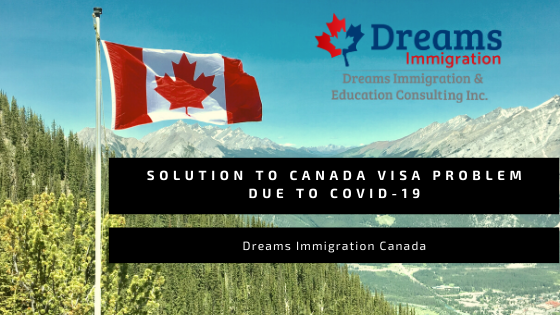New temporary policy for temporary workers in Canada: Temporary workers inside Canada may start a job with a new employer more quickly through a new streamlined process announced May 12 (Source: IRCC). As many temporary foreign workers (TFWs) in Canada lost their jobs due to the economic impacts of COVID-19, the government has created a temporary policy allowing these TFWs, who are already in Canada with an employer-specific work permit, to more quickly change employers.
Normally, TFWs who lost their job in Canada would have to apply for a new work permit and wait until a decision is made on this application—a process that usually takes 10+ weeks. Under the new process, TFWs can start a position with a new employer before their new work permit application is processed.
Important: TFWs with employer-specific work permit still have to apply for their new work permit. After applying, they must follow the instructions on this IRCC webpage, and must wait until receiving email confirmation from IRCC that they can start working in their new position. TFWs with open work permits are always able to switch employers, so this policy does not impact them.
Border closures: Canada has closed its borders to the vast majority of foreign nationals. Ports of Entry, both at airports and at the Canada-U.S. border have been closed to most individuals who wish to enter. Border restrictions with the U.S. are scheduled until at least May 21 (source: Order in Council) and all other international travel restrictions are scheduled until at least June 30 (source: Order in Council). However, extensions of these travel restrictions are expected if the public health crisis is not under control.
Immigration, Refugees and Citizenship Canada (IRCC) published official guidelines for the border closure throughout the month of March. The vast majority of foreign nationals are barred from entering Canada at this time, but there are a number of exemptions to the travel ban. The following groups can cross the border into Canada whether by air or by land:
Canadian citizens and Canadian permanent residents;
immediate family members of Canadian citizens and Canadian permanent residents;
temporary workers who hold a valid work permit or who are approved for a work permit but have not yet been issued the work permit (please note that flagpoling is not permitted at this time, refer below for more details);
IEC participants must have a valid job offer in order to enter, but having a job offer does not guarantee entry. A source from CBSA has indicated that IEC participants may be denied entry if they cannot demonstrate their travel to Canada is essential at this time. Please refer to our IEC newshub for details on IEC travel restrictions;
international students who held a valid study permit, or had been approved for a study permit, when the travel restrictions took effect on March 18, 2020;
permanent resident applicants who had been approved for permanent residence before 12pm EDT on March 18, 2020, but who had not yet travelled to Canada
There are a handful of other exceptional exemptions listed here.
(Sources: IRCC, Transport Canada, Governor in Council – U.S., Order in Council – International)
A source at CBSA has confirmed some people who are eligible for exemptions to travel restrictions are being denied boarding on flights or turned away at the border, especially if they cannot provide a plan for self-isolation upon arrival or provide evidence that their travel to Canada is necessary at this time. Even some individuals with arranged employment in essential sectors are being denied entry. Please note that if you choose to travel to Canada at this time, there is a risk that your entry may be denied.
Mandatory Quarantine: As of March 26, anyone entering Canada will be forced to enter a mandatory 14-day quarantine. Canada’s Health Minister has announced that this quarantine will be enforced and that those breaking quarantine may be subject to fines and jail time. Certain exemptions will be made for essential workers. (Source: CBC)
Isolation Plan: If you are planning to enter Canada, you should prepare an isolation plan, detailing how to intend to quarantine for 14 days upon arrival. If you do not have an isolation plan in place you may be denied entry, or made to isolate at a government-designated hotel for the isolation period. You also must wear a mask during your travel from the Port of Entry to your isolation location.
Updates for International Experience Canada (IEC): Government guidelines about how COVID-19 is impacting IEC, including the Working Holiday program, were published on April 17 and updated May 8. We’ve updated our Working Holiday Newshub with these latest updates.
Asylum seekers: On Friday, March 20, Prime Minister Trudeau announced that asylum seekers who irregularly cross the U.S. border into Canada will be returned to the United States.
International students already in Canada: The government has lifted the 20 hours of work per week restriction for study permit holders who working in essential services. This will allow international students to work more hours in critical sectors.


